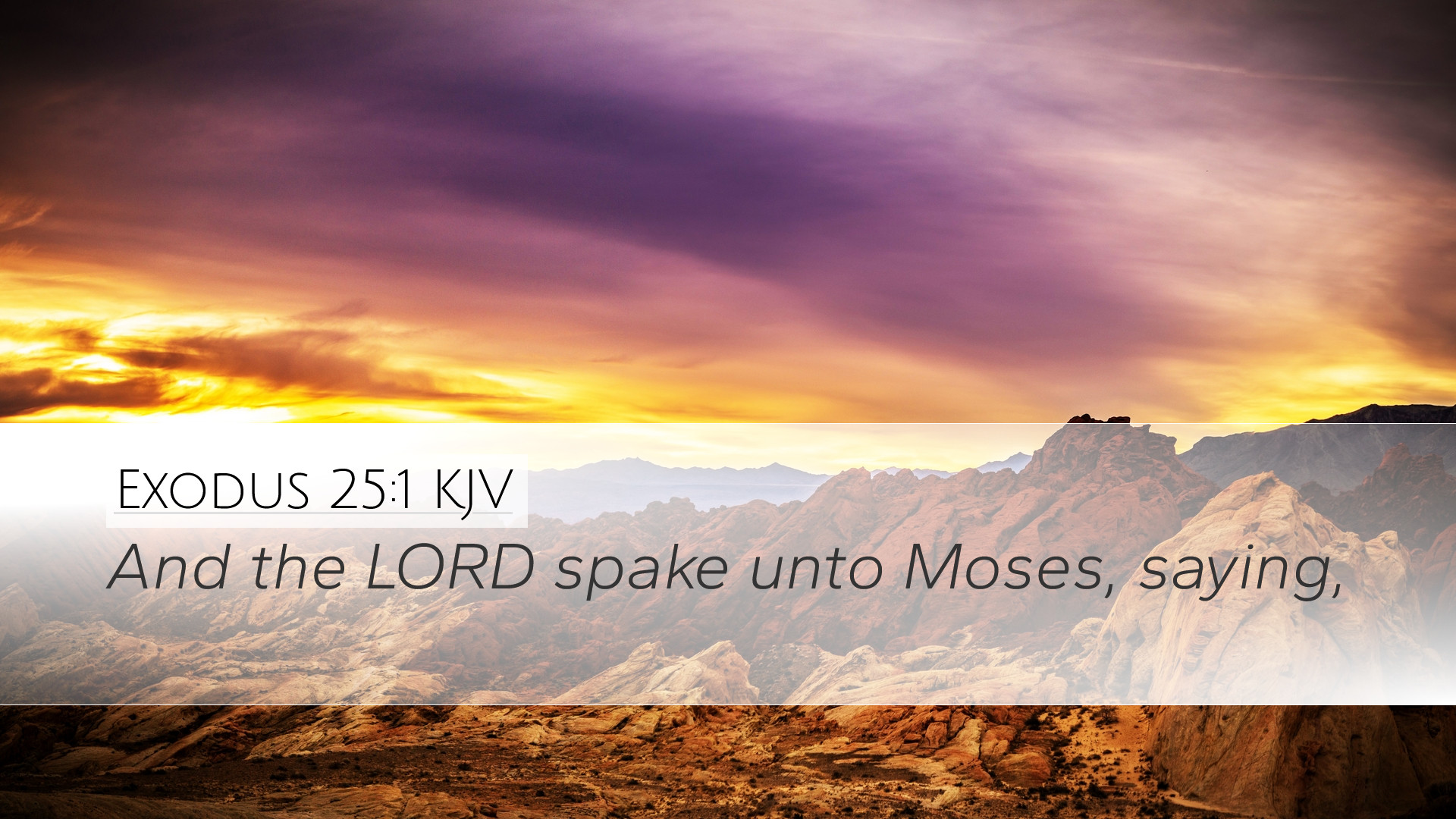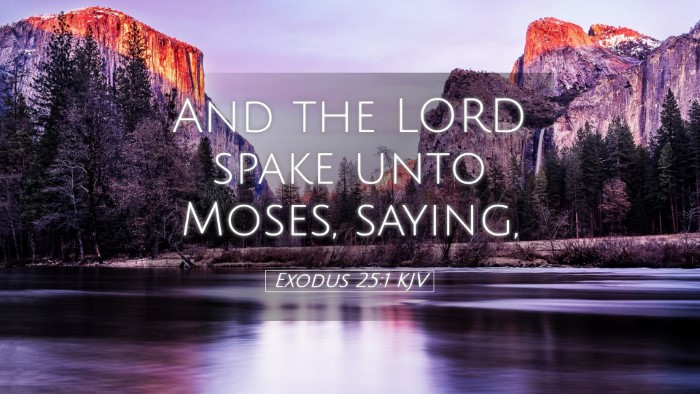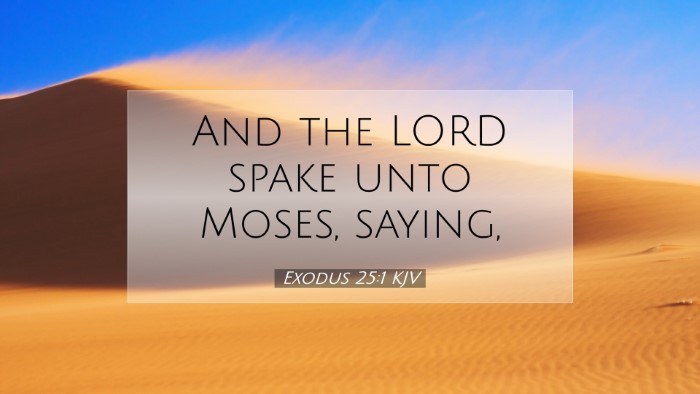Commentary on Exodus 25:1
Exodus 25:1 (KJV): "And the Lord spake unto Moses, saying,"
Introduction
The verse serves as a significant point in the unfolding narrative of Exodus, establishing God's direct communication with Moses. This interaction is foundational in understanding the nature of divine instruction and the covenantal relationship between God and Israel. Notably, Exodus 25 serves as a transition from the historical narrative of liberation from Egypt to the establishment of God's dwelling among His people.
Contextual Background
In the broader narrative, the Israelites have been delivered from slavery, and God now seeks to dwell among His people. The commandments and the tabernacle are central to this relationship. This pivotal moment introduces the framework for the instructions that follow regarding the construction of the Tabernacle.
Divine Communication
Matthew Henry emphasizes that God's speaking to Moses is not a casual event but a moment of divine revelation. This signifies God's desire to be intimately involved with His people, providing detailed instructions rather than leaving them to their own devices.
Albert Barnes points out the importance of this communication as not merely instructive but transformative, indicating that God wants to establish a relationship with His people, marked by worship and obedience. Barnes notes that the act of God speaking is a step toward the covenant renewal seen throughout Israel's history.
Theological Implications
Exodus 25:1 lays the groundwork for understanding how God interacts with humanity. The act of God speaking signifies:
- Revelation: God reveals His will and purpose, showing that revelation is essential for understanding the divine order.
- Presence: The instruction to build a sanctuary reflects God's intention to dwell among His people, indicating the sacredness of place and worship.
- Covenantal Relationship: The requests for contributions (which are elaborated in subsequent verses) highlight the participatory aspect of worship and community involvement in the establishment of the tabernacle.
Interpretations from Prominent Commentaries
Adam Clarke provides a detailed exposition on the significance of the Lord’s command. He notes that the term "spake" is used to emphasize the personal nature of God’s voice, which is essential in shaping the identity and religious practices of the Israelites.
Clarke also highlights the importance of the materials mentioned later in the chapter, indicating that the contributions of the people were not merely financial but a reflection of their commitment to the covenant and worship.
Historical Context
Historically, the Israelites were familiar with the practices of surrounding nations in constructing sacred spaces. This instruction, however, is distinctly different, rooted in divine specification rather than human tradition. The purpose of the Tabernacle serves as a model of God’s salvation plan and His desire for fellowship with His people, something highlighted in various commentaries.
Applications for Today
For pastors and theologians, Exodus 25:1 serves as a reminder of God’s ongoing desire to communicate and dwell among His people. This has implications for worship, community, and the importance of heeding divine instruction in the modern age.
Additionally, the call for contributions can be viewed as an invitation to active participation in God's work, encouraging believers to consider how they can contribute to the advancing of God's kingdom today.
Conclusion
In summary, Exodus 25:1 is not just an introductory statement; it is a profound assertion of God's initiative in establishing a dwelling with His people. The insights garnered from historical and contemporary commentaries provide a wealth of understanding about God's nature, the importance of worship, and the active role of believers in God's narratives. The text invites reflection on God's continuing work and our responses to His divine communication.


